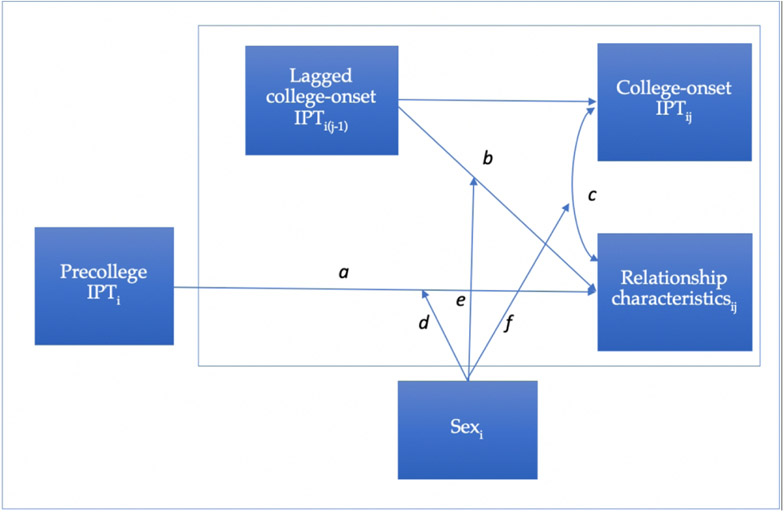Figure 1.
Conceptual model for analyses examining 1) whether precollege and college-onset interpersonal trauma (IPT) predicted relationship status, relationship satisfaction, and partner alcohol use; 2) whether college-onset IPT had lagged or concurrent associations with these relationship characteristics; and 3) whether any of these associations varied in a sex-specific manner. The pathway denoted by subscript a represents the effect of precollege IPT on each relationship characteristic. The pathway denoted by subscript b represents the lagged associations between college-onset IPT and each relationship characteristic. The pathway denoted by subscript c represents the concurrent associations between college-onset IPT and each relationship characteristic. The pathway denoted by subscript d represents the moderating effects of sex on the associations between precollege IPT and each relationship characteristic. Lastly, the pathways denoted by subscripts e and f represent the moderating effects of sex on the lagged and concurrent associations between IPT and each relationship characteristic, respectively. Although represented as one model, a parallel series of models was run for each relationship characteristic (relationship status, relationship satisfaction, partner alcohol use) with p-value thresholds of < .05 for each model because each characteristic represents a unique construct. College-onset IPT and all three relationship characteristics were treated as time-varying variables in these analyses (denoted by the subscripts ij), while sex and precollege IPT were treated as time-invariant variables (denoted by the subscript i).

